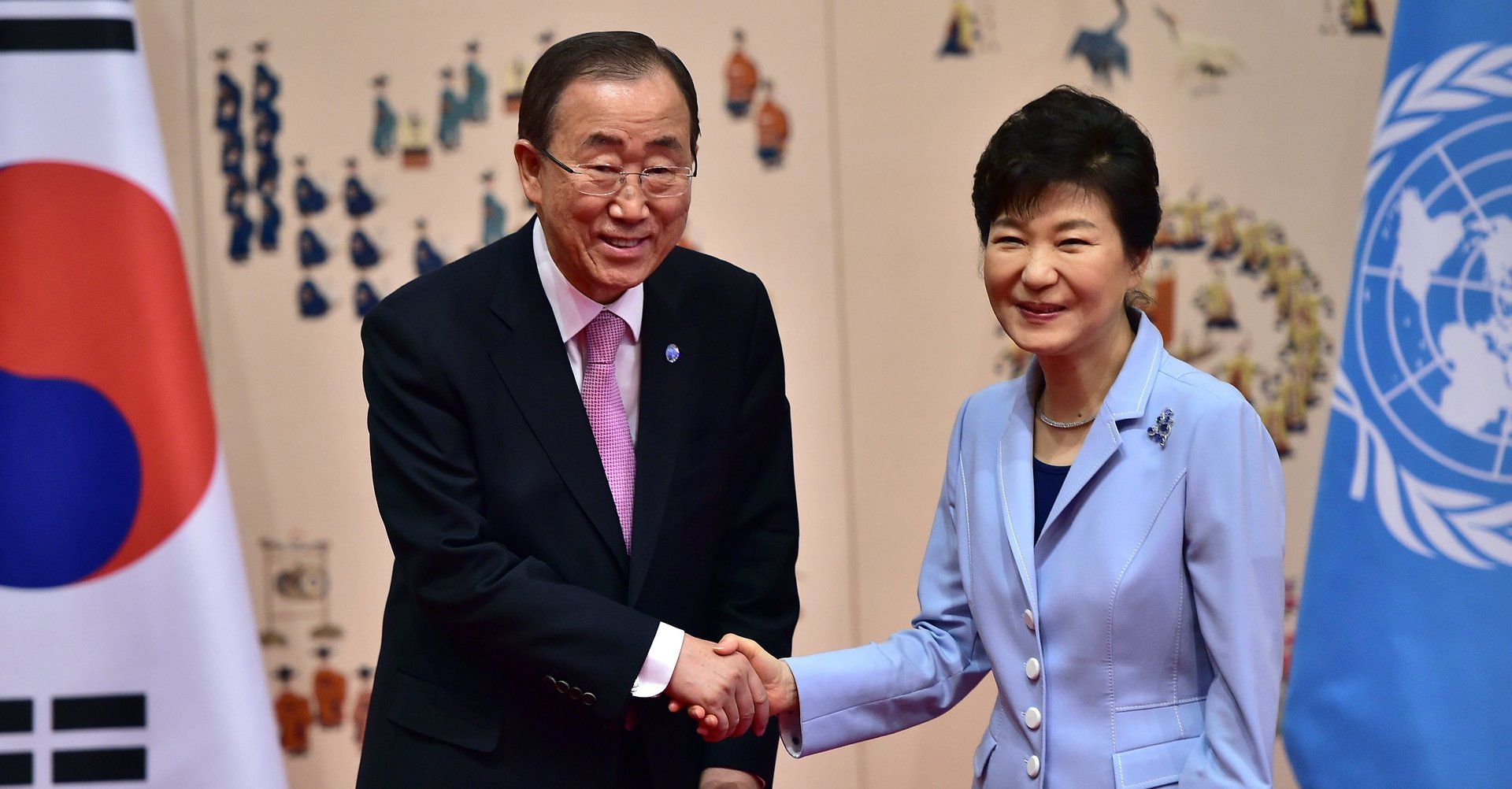Ban Ki-moon is the favorite to be South Korea’s next president, whether he likes it or not
Seoul, South Korea


Seoul, South Korea
Is the secretary general of the United Nations, Ban Ki-moon, the leader to fix South Korea’s economic woes? Many of the country’s citizens certainly think so.
According to multiple surveys conducted by local media and polling companies in recent days, 72-year-old Ban is the runaway favorite to take up residence in Seoul’s presidential Blue House, in elections slated for December 2017—even though he isn’t running, as of now.
Apart from saying that he plans to return to Korea in January after his term as UNSG ends in December, Ban has made no explicit comments about the presidency.
But that hasn’t stopped Koreans from obsessively reading the tea leaves for clues of Ban’s political ambitions, including a meeting between him and president Park Geun-hye earlier this year, and news that he is refurbishing a long-vacant apartment in Seoul. After speculation of a Ban presidency began swirling last year, Ban shrugged off the gossip, but didn’t outright deny his interest.
“He’s a very seasoned statesman, and in Korea, one of the most important issues is the inter-Korean crisis,” or tensions between North and South Korea, said Moon Chung-in, a professor of political science at Yonsei University in Seoul and a member of the Presidential Committee on Unification Preparation. “People think he’s the most ideal candidate to deal with that kind of challenge,” Chung said, adding there’s a 75% chance Ban will run for president.
A Ban fanclub called “Firefly” was recently set up (in Korean, firefly is “banditbul-yi,” which sounds similar to his name). Its page on Korean social networking site Naver shows photos (link in Korean) of Ban on humanitarian missions around the world and meeting with celebrities, including actress Maya Rudolph. People in his hometown of Eumseong in the center of the country are also crazy about him.
“Ban Ki-moon represents experience, public service, and gravitas to many Koreans who see politicians as simply self-serving. The fact that Ban has so much international experience is seen as positive by those Koreans who want to further globalize Korea and make it a stronger international player,” said Katharine Moon, a professor of political science at Wellesley College. “Ban’s lack of experience in domestic governance could be a minus for him. But because he does not have a domestic track record people can look at, it’s hard to criticize him.”
Ban served as foreign minister under progressive president Roh Moo-hyun in 2004. However, many in Korea believe that if he returns to the political fold in Korea, he will align himself with the ruling conservative Saenuri party.
“President Park has been dismal,” said Moon Chung-in. “Economic recovery is not taking place, the inter-Korean security crisis is deepening and widening, and social ambience is against Park and her party,” so the Saenuri party is likely to try to recruit Ban to their side.
The ruling party suffered heavy losses in parliamentary elections in April amid growing frustrations over the country’s economic woes, compounded more recently by the bankruptcy of shipping giant Hanjin. More recently, the government’s unpreparedness in responding to a series of rare earthquakes, growing hostility from North Korea, and a plan to install a US anti-missile shield in the south, a conservative stronghold, are fueling the government’s unpopularity.